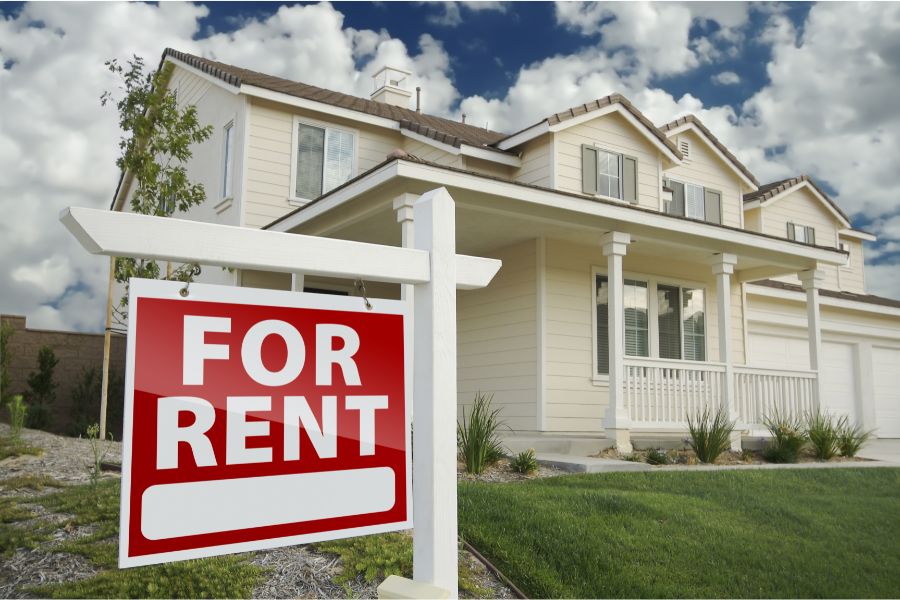Wellington, affectionately known as the ‘coolest little capital in the world’, is a vibrant and picturesque city that has become a hotspot for both domestic and international visitors. However, Wellington’s rising popularity, coupled with the advent of the sharing economy, has brought to the forefront a pressing concern for its residents and potential investors alike: the unrelenting growth of Airbnb listings and its impact on the local housing market. In this comprehensive analysis, we’ll explore the complexities of this issue and dissect the long-term repercussions of this phenomenon.
The Rise of Airbnb in Wellington

Once known for its traditional long-term rental market, Wellington has experienced a seismic shift with the rapid expansion of Airbnb properties. The allure of high short-term rental yields is undeniable, and it has resulted in a significant upsurge in property owners pivoting to vacation rentals. According to data from Stats NZ, in 2018, over 5,000 Airbnb listings were reported in Wellington. This number has likely soared higher since, creating a competitive space for long-term tenants seeking stability in an increasingly volatile market.
Disrupting the Status Quo
The burgeoning presence of Airbnb has disrupted the traditional landlord-tenant dynamics. With more properties converted into short-term rentals, there are fewer options available for those seeking a place to call home on a long-term basis. This disruption is not merely a numbers game; it undercuts the foundational principle of housing as a human need, not just an investment vehicle.
Statistics on Displacement
Seeking to paint a more comprehensive picture, a 2021 report by Salient highlights a 43% decrease in long-term rentals available online over a two-year period, correlating with the rise of Airbnb. This stark trend reflects the shortfall of available dwellings for the local populace—a worrying sign of the market’s leanings towards catering to transient visitors.
The Case for Long-Term Rentals

In defending the flag of long-term rentals, we unpack the manifold benefits that this age-old model brings to the table. A stable, continual source of income provides a more predictable financial outlook for homeowners compared to the fluctuating nature of Airbnb earnings.
Financial Stability for Homeowners
The comparative stability of long-term rental income acts as a financial bulwark for homeowners, particularly during economic downturns or unforeseen market disruptions. This is an attractive proposition for owners who prioritise security in their investment strategies.
Consistency and Community Building
Beyond financial predictability, long-term rentals foster a sense of community and continuity. Tenants who stay for longer periods are more likely to put down roots, engage with their local environment, and contribute to the socio-economic fabric of Wellington on a year-round basis.
Regulatory Challenges and Solutions
The increased penetration of Airbnb presents a new set of challenges for local governments and communities. Balancing the opportunity to accommodate tourists with the need to ensure stable housing for residents is no easy task.
Navigating Local Regulations
Wellington has begun to grapple with the necessity to tighten regulations around Airbnb and short-term rentals. Local councils are looking to introduce licensing requirements and caps on the number of nights a property can be rented out, aiming to curb the saturation of short-term rentals.
Addressing Affordability and Availability
While regulatory measures are vital, they are only part of the puzzle. The real solution lies in ramping up the availability of long-term rental properties to match the growing demand. Government initiatives and private sector collaborations can streamline this process, ensuring that Wellington maintains a balanced approach to its housing market.
Insights from Real Estate Investors and Homeowners
To encapsulate the full spectrum of experiences, we turn to real-life anecdotes and case studies from stakeholders directly impacted by the Airbnb boom.
The Investor’s Perspective
Many investors and property owners have found success in the short-term rental space, navigating the intricacies of the Airbnb market to maximise their returns. Yet, there is an increasing awareness of the need to strike a balance that supports both the entrepreneurial spirit and the fundamental right to stable housing.
Homeowners’ Dilemmas
For those caught in the crossfire, the decision to opt for long-term rentals over Airbnb is not always straightforward. Homeowners face the pressures of maintaining mortgage payments, with short-term rentals often appearing as lucrative stopgaps. The challenge is in aligning individual interests with the broader collective good.
Looking Ahead: Predictions for Wellington’s Housing Market

The trajectory of Wellington’s housing market is at a critical juncture, and the decisions made today will reverberate for years to come. We predict a paradigm shift towards a more regulated coexistence of Airbnb and long-term rentals, with an emphasis on preserving the residential character of the city.
Empowering the Community
Empowerment of the local community through participatory decision-making processes can influence the housing landscape. By being vocal about preferences and concerns, residents can guide the development of housing policies that reflect Wellingtonians’ values and needs.
Sustainability Through Diversification
The diversification of the housing market, with a renewed focus on affordable long-term rentals, offers a sustainable path forward. This blueprint not only secures dwellings for residents but also mitigates the risk of volatile market conditions that have the potential to destabilise local economies.
Conclusion
In the grand scheme of things, the balance between Airbnb and long-term rentals is not an either-or proposition but a quest for equilibrium. By acknowledging the nuanced challenges and engaging in collaborative, forward-thinking solutions, Wellington can redefine success not just by occupancy rates but by the longevity of its housing model. It is a shared responsibility—one that unites investors, regulators, and the community at large in building a future where all can thrive.
The Airbnb vs. long-term rental debate is multifaceted, and its impact on Wellington’s housing market is profound. It is imperative to approach this issue with a lens that captures the essence of home as more than just a transient commodity. In doing so, we honour the individuals and families who seek shelter and community, reflecting the very spirit of Wellington itself—a city that cherishes its people as much as its visitors. As we collectively strive for a balanced market, it is not only the housing landscape that stands to gain but also the heart and soul of this ‘coolest little capital’ that will endure and flourish.
Frequently Asked Questions
How is Airbnb affecting the availability of long-term rentals in Wellington?
The rise of Airbnb has led to more property owners switching from long-term rentals to short-term stays, reducing the number of homes available for year-round tenants. Reports have shown a sharp drop, over 40% in some cases, in available long-term listings, which makes it harder for residents to find stable housing.
Are there any regulations in Wellington to limit Airbnb growth?
Yes. Wellington City Council is considering measures such as licensing requirements, caps on the number of rental nights, and stricter zoning rules for short-term rentals. These rules aim to balance tourism opportunities with the need to protect housing availability for locals.
As a homeowner, how do I decide between renting long-term and using Airbnb?
Choosing between long-term rentals and Airbnb comes down to your priorities. Airbnb may offer higher short-term returns but comes with more volatility, seasonal demand, and regulatory risks. Long-term rentals provide steady income, fewer vacancies, and help build community stability. Many homeowners are now weighing both financial and social impacts before making their decision.



